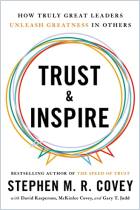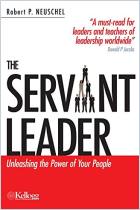Зарегистрируйтесь на getAbstract, чтобы получить доступ к этому краткому изложению.

Зарегистрируйтесь на getAbstract, чтобы получить доступ к этому краткому изложению.
John Knights and Greg Young
Leading Beyond the Ego
How to Become a Transpersonal Leader
Routledge, 2018
Что внутри?
Organizations need leaders who are also good people.
Recommendation
Leadership consultants John Knights, Danielle Grant and Greg Young assert that CEOs need a robust moral code to avoid degenerating into ruthlessness, aggression and exploitation. They say firms need chiefs who also are self-confident, assertive and charismatic. This serious overview tells executives how to become “transpersonal leaders” and explain why they must turn to values, ethics and empathy for guidance. The authors detail the kinds of intelligence leaders need, explain how even insensitive bosses can become transpersonal, and make it clear that a good leader must be a “good person.”
Summary
About the Authors
The editors and authors, all from the LeaderShape Global Consultancy, are: chairman and co-founder John Knights; CEO and co-founder Greg Young; director Danielle Grant; and contributing authors Sue Coyne, Jennifer Plaister-Ten and Tony Wall.






















Comment on this summary